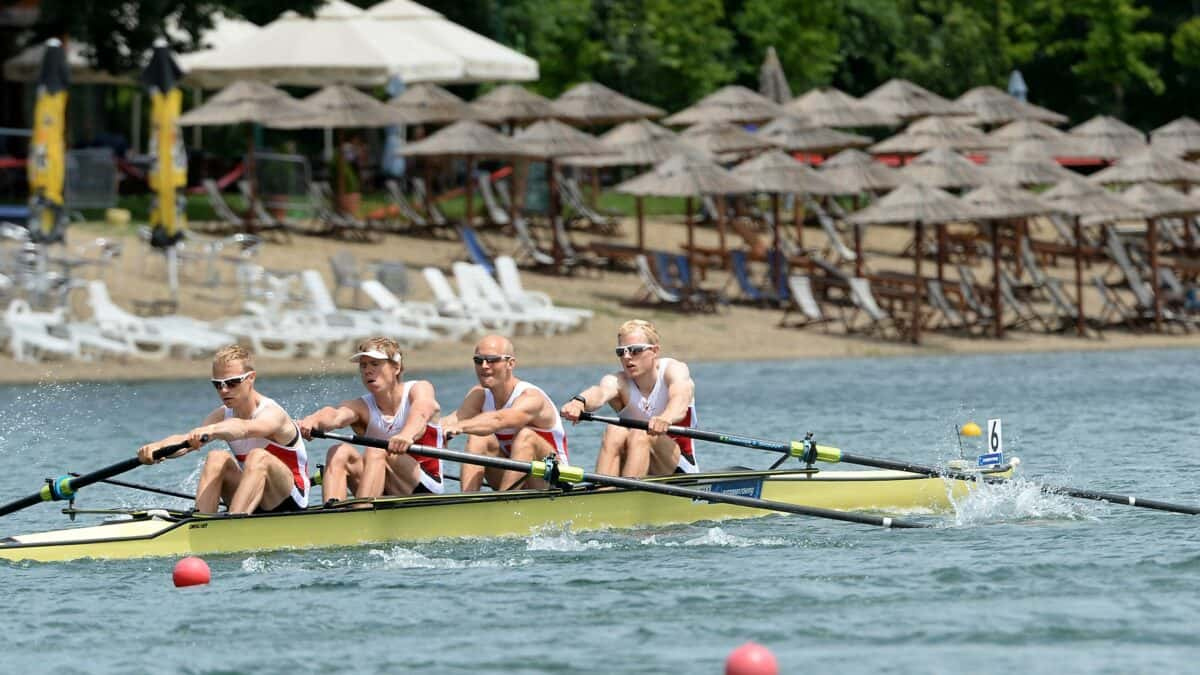
20 Jun 2014
Danish national icon - the lightweight men's four
It all began in 1993 when the International Olympic Committee, IOC, decided to introduce the lightweight men’s four into the Olympic programme. This prompted the Danish Rowing Federation along with Team Danmark, the organisation that oversees all elite sports in Denmark, to go all-out in an attempt to create a boat which could compete with the best at the Olympic debut in 1996.
From the beginning, the team around The Golden Four attempted to set new professional standards. They challenged established training methods, they increased the demands for better equipment, they began applying the expertise from Team Danmark with respect to nutrition and also worked with sports psychologists.
“They took the first steps to introduce a culture around the lightweight men’s four based on reaching perfection. They wanted to be the best at everything, so they investigated all details; training, the equipment, food, etc which could help in making the boat faster. And in that respect they revolutionised the way we go about optimising all aspects of our long-term preparations for big championships in reference to all sports.” says CEO of Team Danmark, Michael Andersen.
Andersen points out that The Golden Four has helped established Denmark on the world map of sports. “Really, it is quite unheard of that such a small country can dominate one of the most prestigious boat types in world rowing. Therefore the lightweight men´s four has turned into a national icon for the population. Indeed, all the people who have been involved with The Golden Four have set an example for the rest of us to follow and all of them have become very positive role models for the younger generation to aspire to,” says Andersen.
The results of their efforts have been obvious. In fact if you compare all sports disciplines within the Olympics, only The Golden Four has been able to continuously earn medals for Denmark at all of the Olympics since 1996. In total, the boat has won no less than 17 medals; three gold and two bronze medals at the Olympics, seven gold and three silver medals at the World Rowing Championships and two gold medals at the European Rowing Championships.
Part of the success has been never to introduce a completely new crew into the boat. “If you look at our history, we have never changed a complete crew from championship to championship. We have always had at least one guy in the boat who could carry all the knowledge and wisdom on to the next generation,” says Eskild Ebbesen, who won the Thomas Keller Medal on the back of his amazing performances in the lightweight men’s four.
[PHOTO src=”111135″ size=”mediumLandscape” align=”right”]
Ebbesen underlines that part of the success in The Golden Four has been built on an internal convention. Within this convention it was never good enough just to put in the same effort as former crews had done the season before. “It has always been about going that extra mile, to always make sure that you were progressing, to always move forward in order to develop the project. You had to have the hunger within always to strive for more,” says Ebbesen.
The next challenge for the Danish lightweight men’s four is at the World Rowing Cup in Aiguebelette, (FRA) but their main season target is to regain the top spot on the podium at this year´s World Rowing Championships in Amsterdam.
Copy thanks to Svend Bertil Frandsen
Communications consultant for Danish Rowing

